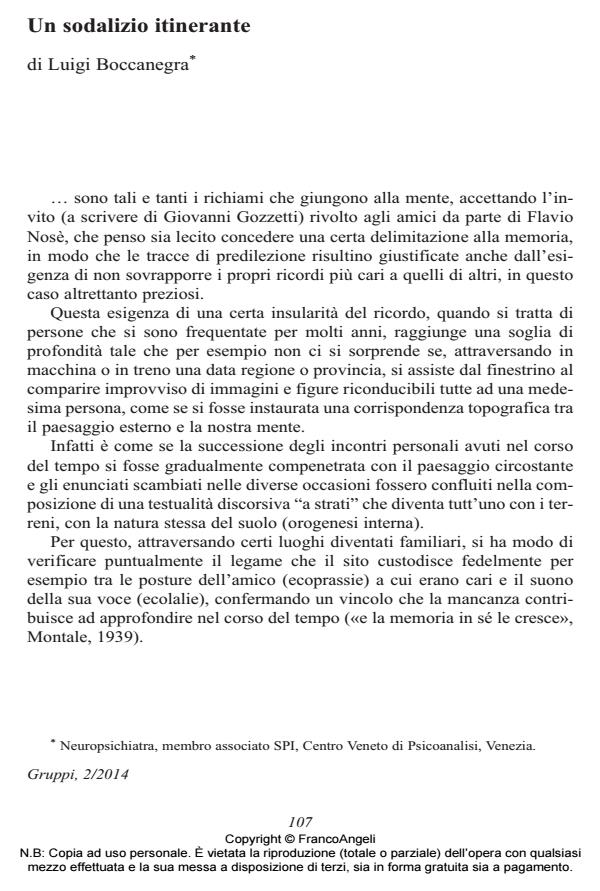An itinerant friendship
Journal title GRUPPI
Author/s Luigi Boccanegra
Publishing Year 2014 Issue 2014/2
Language Italian Pages 16 P. 107-122 File size 94 KB
DOI 10.3280/GRU2014-002011
DOI is like a bar code for intellectual property: to have more infomation
click here
Below, you can see the article first page
If you want to buy this article in PDF format, you can do it, following the instructions to buy download credits

FrancoAngeli is member of Publishers International Linking Association, Inc (PILA), a not-for-profit association which run the CrossRef service enabling links to and from online scholarly content.
Considering that grief - in a more and more well-defined, unmistakable way - is part of the physiognomy of our closest partners who have passed away, the author will further continue his dialogue with the colleague he praises. He imagines that he and his friend are again traveling through the same places that gave life to a friendship which was born along the way: from their first experiences as teachers in Modena to psychoanalysis, which was carried out with Dr. Salomon Resnik, their common analyst. By trying to put together the closest geographical-cultural standards - that is, German and French - the author claims that with their micro narratives, plastic arts have enriched religious architecture (especially through capitals, or column reliefs), and that they can provide some excellent indications which can be helpful in clinical observation. In the humble figures which reproduce the habitual practice (echopraxias) of industriousness and restoration that entire generations have tried to hand down, the author maintains that traces of quintessential gestures are to be found both in many of the patients’ dream personifications and in dialect poetry ("mistierò", in Zanzotto). He then imagines that his colleague - with whom he shared many unforgettable conversations - suggests that the echopraxias not be contrasted with the echolalias, so that the conversational composition that characterizes the treatment should not lose the intangible nature of a whisper, which usually develops into speech when it brings relief.
Keywords: Grief, clinical observation, micro narratives, dialect, echopraxias, echolalias.
Luigi Boccanegra, Un sodalizio itinerante in "GRUPPI" 2/2014, pp 107-122, DOI: 10.3280/GRU2014-002011